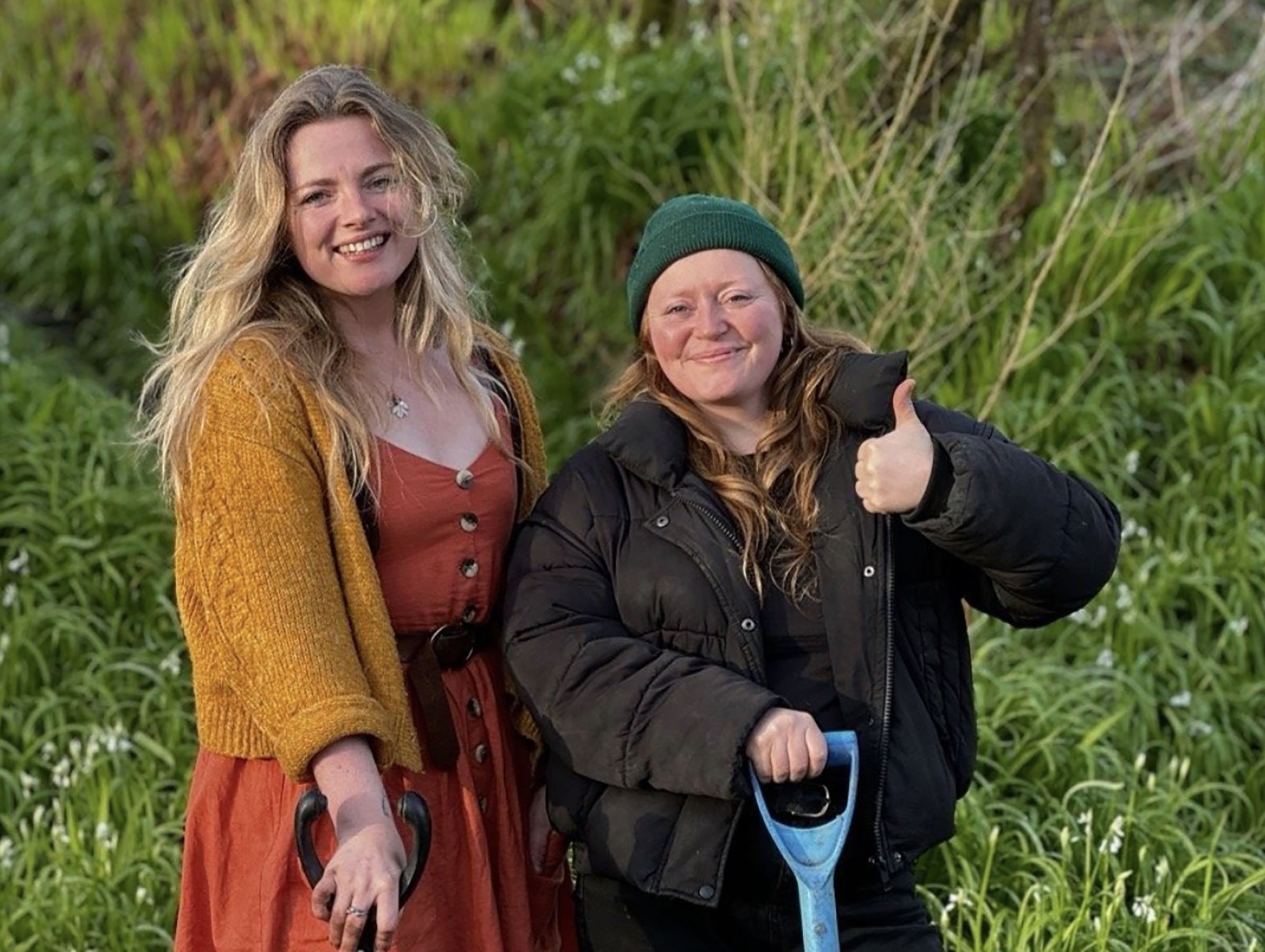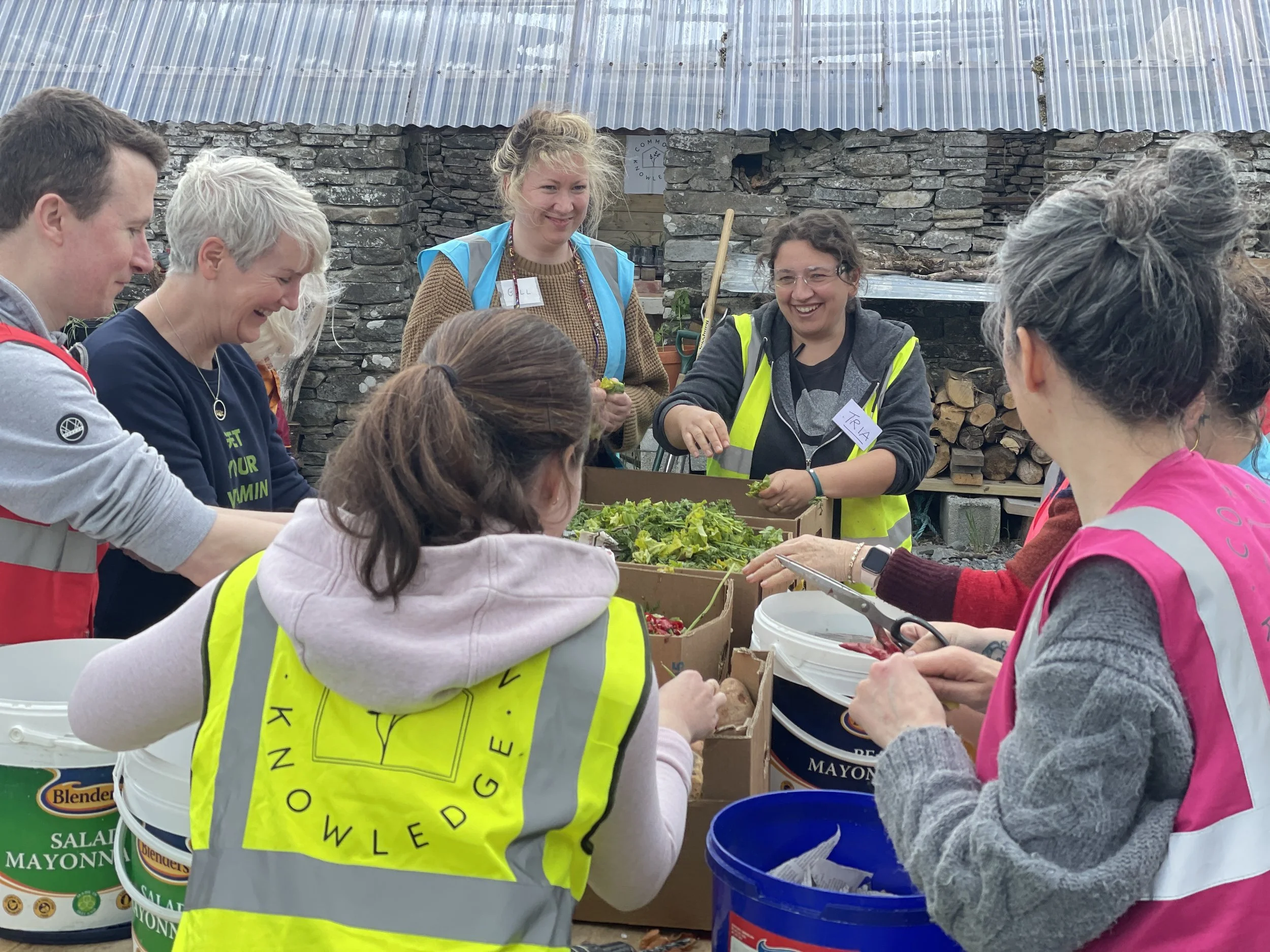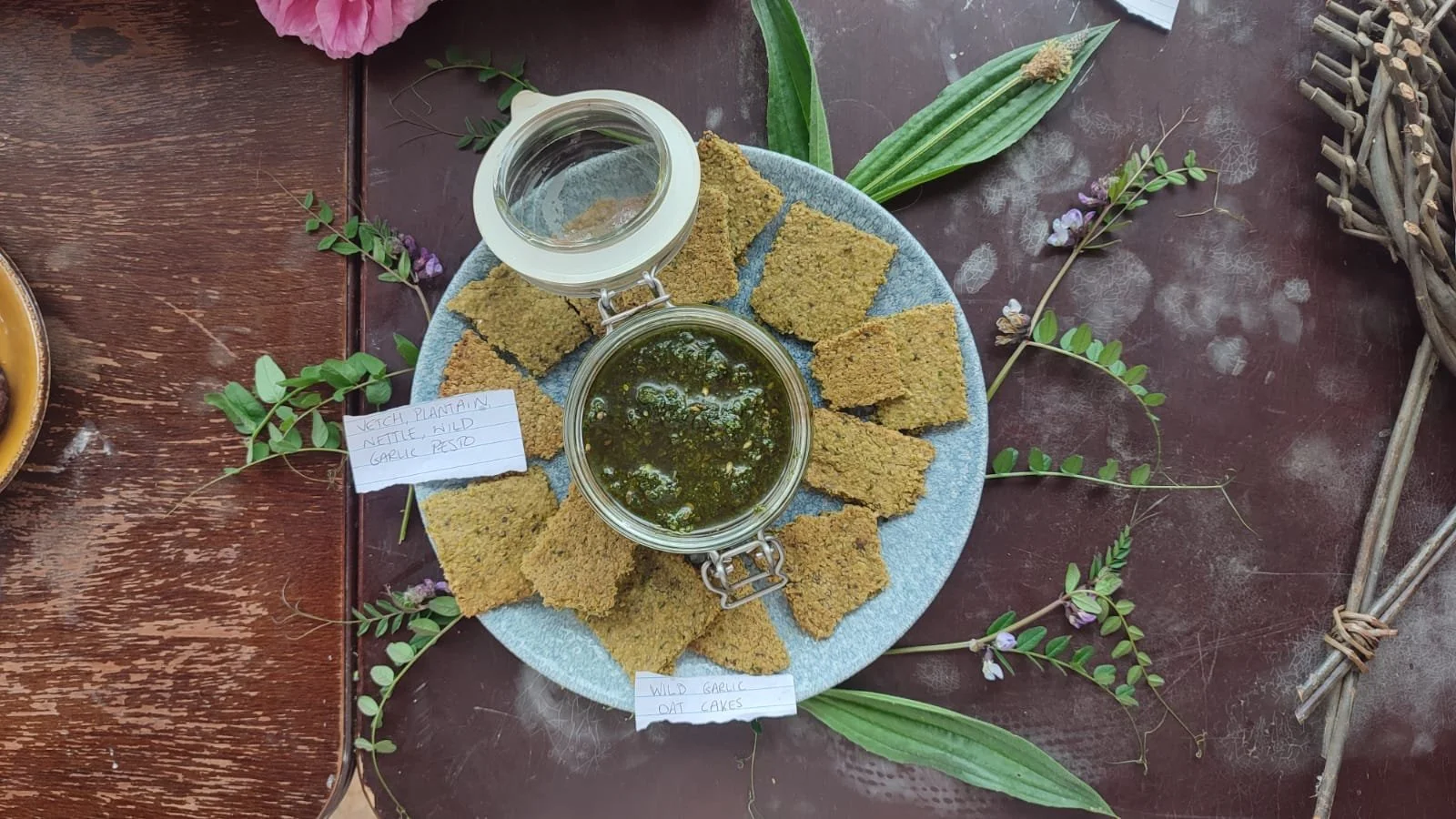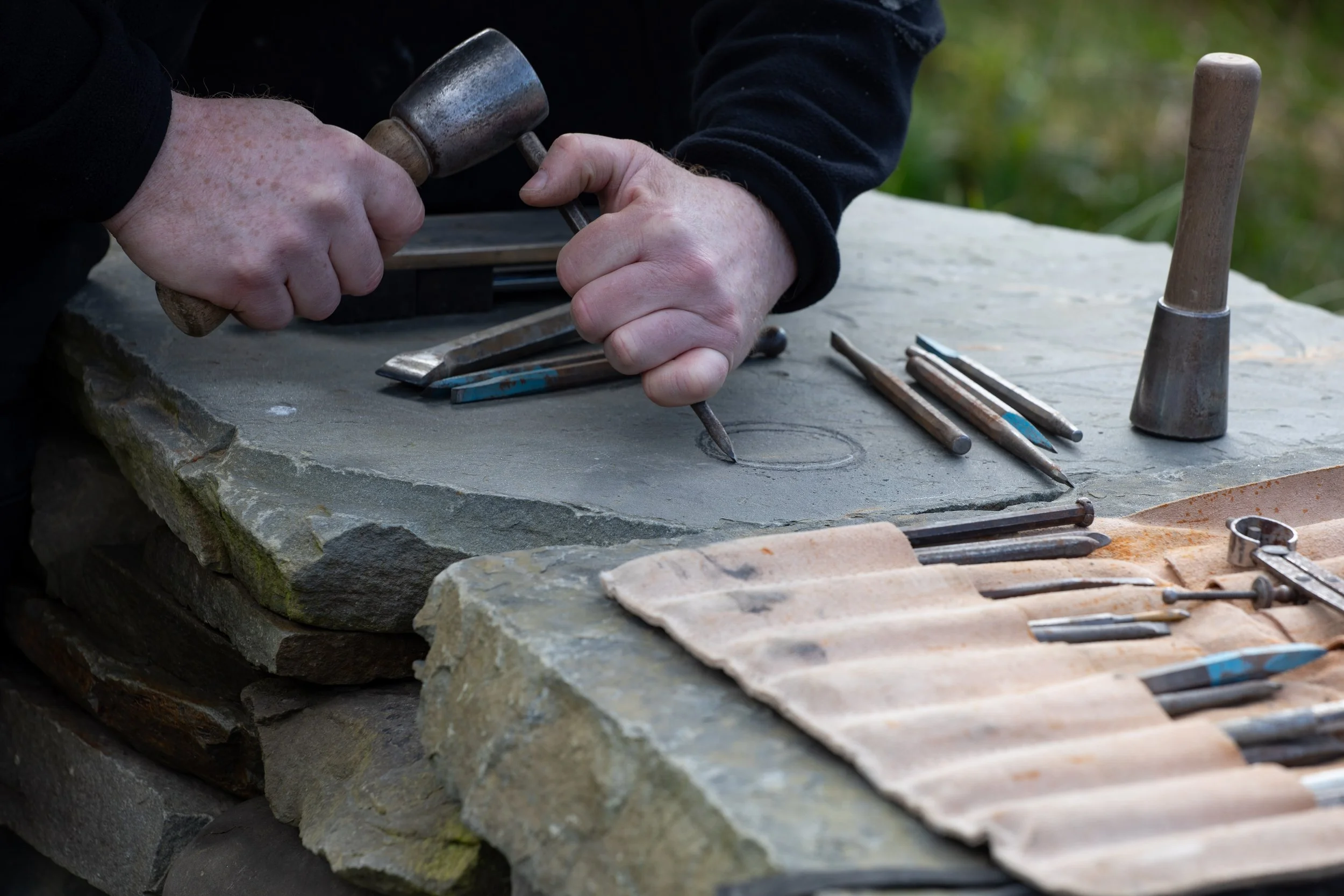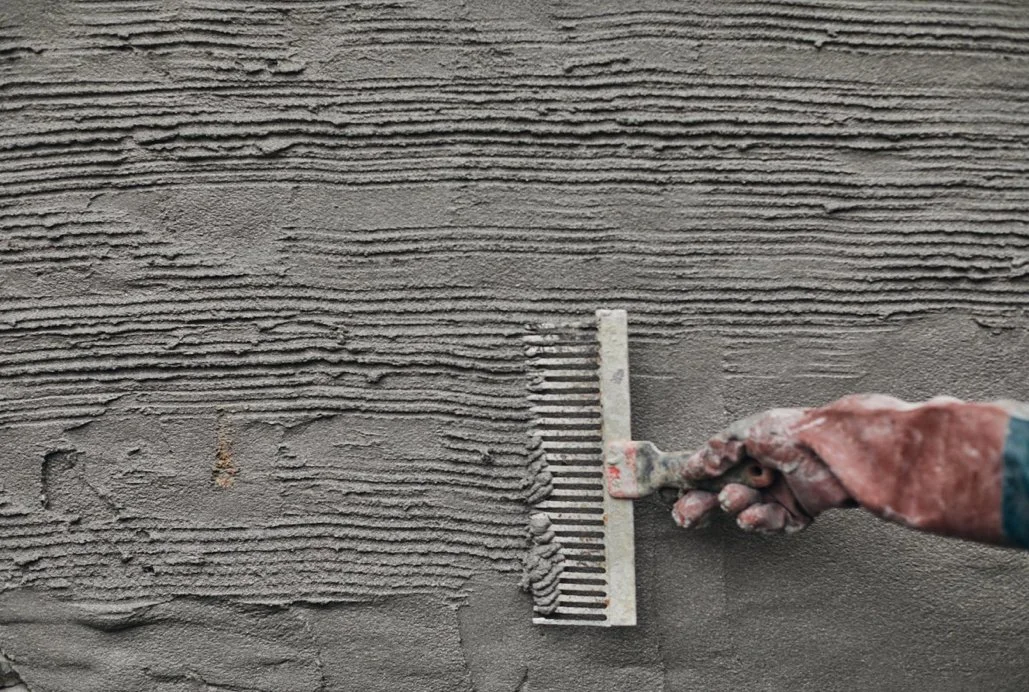Why We Need to Keep Traditional Skills Alive
Aoife Hammond, our Events and Community Co-ordinator (right) with Ciara Parsons.
Sharing skills and learning about traditional ways of doing things are central to what we’re about at Common Knowledge and also lie at the heart of our Events and Community Manager, Aoife Hammond’s approach to life. We sat down with Aoife to find out how traditional music, community building and the making of creative spaces influences them and all they do here.
Hi Aoife, can you tell us a little about yourself?
I am a singer and a musician - playing lots of different types of music but with a real interest in traditional music and song. I am also a community facilitator and a programmer and producer of cultural and community projects, events and festivals. I have a background in community organising and co-operatives - I love working in creative spaces that bring people together and that has led me to my work in Common Knowledge.
Willow Weaving students showing off their baskets.
Can you talk a little about the importance of continuing on traditional skills in a modern world where we can get everything done for us?
I think we have so much to learn from traditional and heritage skills - I believe they hold immense value. Over the past generation there has been a move away from traditional skills due to convenience and the hectic pace of life but we can see from Common Knowledge and all the people that book into our heritage based courses that it’s not really the way that people want to live - people get joy from taking time and developing skills to make something for themselves - that’s not something you get with a more convenient option. There is a satisfaction and an empowerment that can come from doing something yourself and in also learning the ways that people have been doing so in the past.
The learning and sharing of traditional skills and knowledge is also a way to connect people through generations and across barriers - especially at a time when people are more and more isolated. Sharing skills is something that can be very meaningful and can have huge impact on people lives. Whether it's coming to together to learn knitting, a traditional instrument, stone wall building, woodcraft or gardening - these practices ground us, reduce stress, and offer a unique satisfaction that comes from creating something with our own hands. By continuing these skills, we're not just honouring our heritage - we are building resilient and capable communities.
Volunteers getting their hands dirty in our Organic Garden.
In your experience running the events and projects, what do you see people getting out of taking part and learning these skills for themselves?
I see people growing in confidence and capability and this has a huge impact on people’s sense of self - whether it’s someone going from trying a tool for the first time at the start of the day to building a raised bed for their garden at the end of one or people who are learning the basics of growing and planting seeds, who get a real excitement to go back and help build their local community garden - it’s so great to see. When you bring people together who are passionate and care about what it is that they are learning about it can be a really transformative experience for people and for projects.
One of the biggest impact of our community projects though is the social relationships that develop while people are doing these projects, we have a group of people who have met through our Field Good Friday who meet up regularly and socialise now having never met before the project kicked off or the Meitheal network that has developed to support people who have built their houses through the help of others that they met on Build School or one of our other practical courses. It’s what our community building and skill sharing is all about.
Community building in action.
There are a number of Heritage days held onsite, can you tell us a bit about what goes on these days?
All our Heritage days involve a workshop in the morning on a traditional skill and then a guided walk in the afternoon round our 50 acre site to talk about what we’ve just learned. We’ve done workshops on things like Invasive Species Removal, Lime Plastering and in a few weeks we’ll be doing a Food Preservation workshop, where we’ll use food and plants from our garden and teach folks how to preserve and keep food for the winter months with the amazing Tabitha Halliday. Later on in September we’re doing workshops and walks around a Harvest Day celebration of Lunasa with a traditional singing session then there’s a day about Restoring Nature Trails and later on in October an Apple day with apple pressing, music and song. As you can probably tell with my background we like to add a bit of music and song to as many days as we can (and lots of tea and biscuits too!)
24th and 25 August: Courses and Workshops for Heritage Week
We’ve got a few options onsite for you to celebrate National Heritage Week this year, check out the list below and see what takes your fancy.
Food preservation and making from our garden.
25th August: Heritage Open Day and Traditional Food Preservation workshop
We will kick off the day with at 11am with a Traditional Food Preserving workshop as we preserve some of our vegetables and plants from our site this will be followed by a walk and talk as we discuss all things heritage and biodiversity on our 50 acre site in Kilfenora.
Dry Stone Wall Building and tools.
Weekend Workshop
24th - 25th August, Dry Stone Walling for Beginners
Learn the ancient skill of traditional dry stone walling and leave with the ability to carry out repairs and new builds yourself. The earliest evidence of dry stone field enclosures in Ireland date from over 4000 years ago, in the Ceide fields of County Mayo, and these iconic features of our landscape have become a defining part of the scenery of the west of Ireland. This workshop is aimed at the beginner or novice who has an interest in understanding these age-old techniques for modern application.
Lime Plastering in action.
Weekend Workshop
24th - 25th August, Lime Plastering and Rendering
Discover and practice the best techniques for preparing walls, then rendering and plastering with lime. Lime is a naturally occurring material which has been used in construction for centuries, in the form of plasters, mortars, binders and paints. It is strong yet flexible, water repelling yet breathable, and it discourages moUld and fungi growth. On this course, you’ll be in the safe hands of master stonemason Martin O’Malley.

